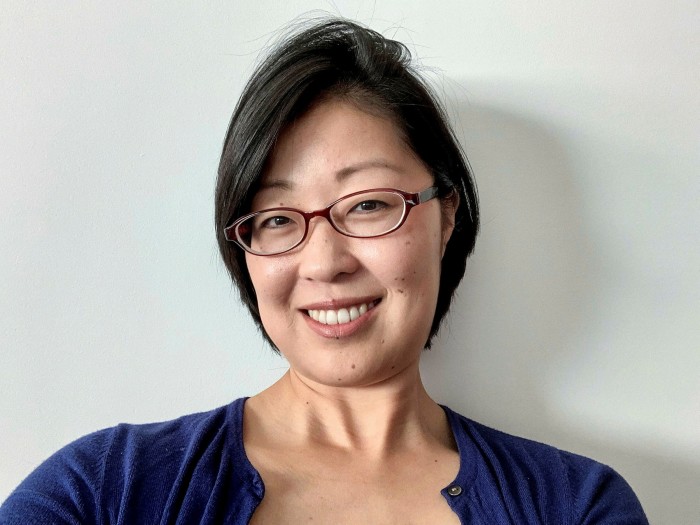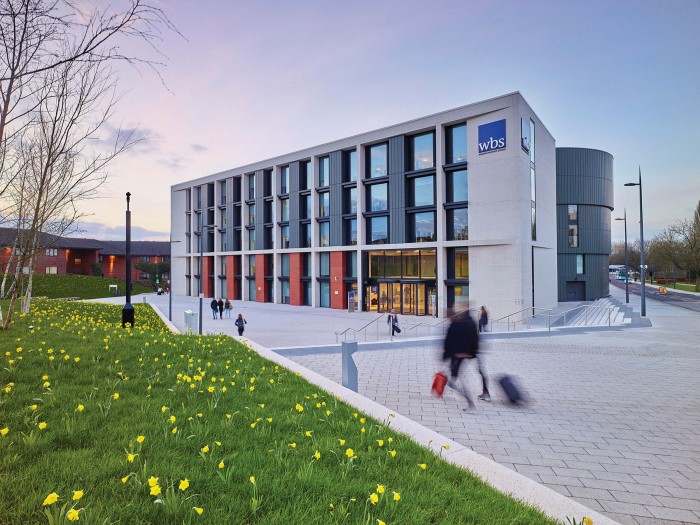School flexibility helps students handle online MBA pressure

Roula Khalaf, Editor of the FT, selects her favourite stories in this weekly newsletter.
In the first month of Claudia Akemi Umemura’s flexible MBA at Warwick Business School, she found out she was pregnant. She was also preparing to move back to her home country, Brazil, after seven years abroad. And the coronavirus pandemic was just about to hit.
Almost two years later, Umemura, a psychologist by training, is working as a talent manager at Accenture in Brazil, and finalising her MBA dissertation. “If I can make it, anyone can,” she laughs.
Since the pandemic pushed much of work and learning online, an increasing number of professionals are opting for online MBAs over in-person courses. But MBAs are still time-consuming, regardless of format — so, for students having to adapt to new working arrangements and managerial responsibilities, flexibility can be key.
Umemura had always wanted to pursue an MBA but was worried she was too old. After checking online MBA rankings (including the FT’s), Warwick’s Distance Learning MBA caught her eye as it required four years’ managerial experience. “I found a great cohort of very experienced people from different backgrounds,” she says.
FT Online MBA ranking 2022 — 10 of the best

Find out which schools are in our ranking of Online MBA degrees. Take a look at our analysis and methodology. Also, read the rest of our coverage at www.ft.com/online-learning.
Course director Pietro Micheli says most students are mid-career professionals, who are trying to balance their business education with jobs and family lives. In an average cohort at Warwick, he says 30-40 per cent will take time out from the course, while around 10 per cent either drop out or choose to receive a lower-level diploma or degree.
“Life throws stuff at you,” Micheli point out. “It may be that you lose your job, it may be that you get promoted, it may be that you have a child. If you’ve got problems, then just let us know and we’ll try to accommodate them.”
Other schools are similarly mindful of the need for flexibility. The Australian Graduate School of Management, for example, allows students to take between two and six years to complete its MBAX programme.
That proved useful for alumnus Brendan Thomas, a father of two who works for the Commonwealth Bank of Australia in Sydney.

A full-time MBA wasn’t an option, he says: “There’s probably not many situations where you have the opportunity to withdraw from your workplace to take a year out without losing some sort of momentum or reputation.”
But even part-time study can be hard work. “Working a reasonably demanding job, with a life on top of it, I got 75 per cent of the way through the course, and then felt I needed a semester off, to get some space, recharge and refocus,” Thomas explains.
Some argue that the huge growth in remote working since Covid struck may lessen the shock of taking on an online MBA. John Gresley, assistant dean at Warrington College of Business at the University of Florida, notes that, before the pandemic, online MBAs were all about flexibility and the opportunity to obtain a qualification from a respected institution without having to relocate.
“Today, it’s really a function of the fact that people have reclaimed their time and space,” he says. “They’re used to being in this digital world at work, so [an online MBA] is a natural extension of that.”
Warrington’s online MBA has an asynchronous structure that allows students to work through the content at a time and a pace of their choosing. But, for those who need more intervention and face-to-face catch ups, this may not be suitable.
“You’ve really got to understand yourself to be successful in a programme like this,” Gresley says. “We recommend that you be pretty organised.”
Gresley adds that one way students stay on track is by supporting each other — through group work, networking, and social media such as WhatsApp and Slack. “It’s easy to commiserate and find common ground when your kid busts in or your dog climbs up on your lap while you’re having your group meeting,” he says.
A key draw of traditional MBAs for many professionals is the networking opportunities they afford with fellow students and alumni. But that experience may take more effort to replicate online. Nevertheless, in a soon to be published report, the Graduate School of Business at the Politecnico di Milano found that the interaction between students and faculty online was richer than on the in-person MBA.
“Knowing that you are in an online environment, you know it takes more effort to stay connected because it doesn’t happen naturally,” says Federico Frattini, the school’s dean.
His view is echoed by Rachelle Cantet, who is currently studying for the Global Online MBA at IE Business School in Madrid. “In terms of networking, it is harder” she says. “You have to make more effort to get to know your classmates.”
Cantet works in commodity financing for French investment bank Natixis, and started the MBA to help her career both there and at the start-up she co-founded, which produces pet food made from insect protein.
The IE course begins with a three-week in-person programme, during which the cohort has a chance to get to know each other over drinks and dinners. “If you want to make friends, you have to try and not be shy,” she says.
Comments